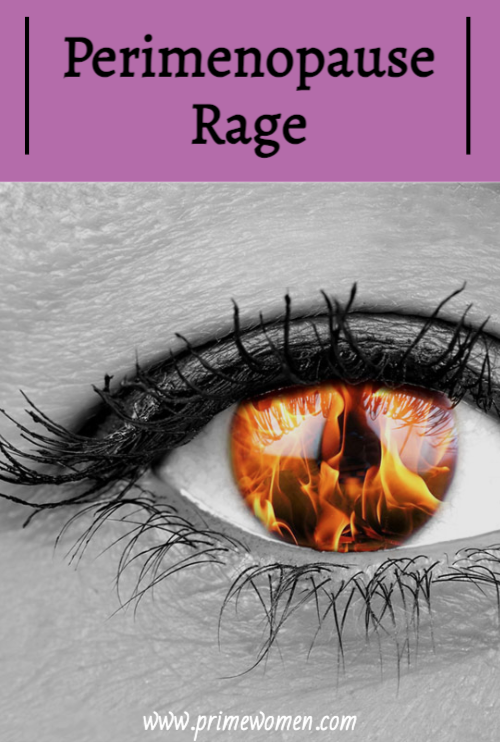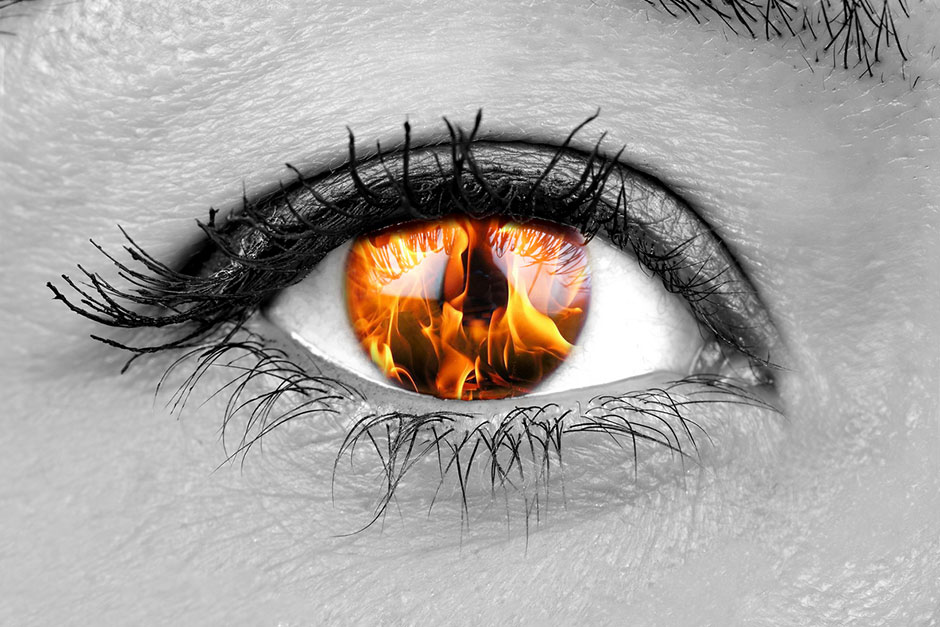How many of us have white-knuckled our way through a staff meeting, traffic jam, or endless wait at the doctor’s office? Five years ago—heck, five months ago—these would have been irritating, but chances are we would have handled it just fine, greeting the overdue doctor or line-cutting driver with equanimity, even a smile. Now it’s all we can do not to scream and throw things and use colorful language and wave with that finger. So, let’s talk about perimenopause anger.
It doesn’t take big irritations like a traffic jam to steam up our brand-new bifocals. An uncleaned kitchen. Incomplete homework. Being interrupted at work once too many times by that new kid with the shiny hair and perfect skin. Suddenly we’re snapping at our loved ones, barking at our staff, chewing out the barista, and feeling like an ogre for the rest of the day.
In perimenopause, it isn’t just estrogen that’s declining. We also see dips in feel-good hormones like serotonin and dopamine and lose the emotion-dampeners that keep the fight-or-flight hormones (like adrenaline) in check.
Until your body adapts to its “new normal” level of hormones in perimenopause, emotions can be heightened – just in time to raise some teenagers, cope with aging parents, and compete with those younger, shiny haired kids at work.

Why does rage happen?
What is going on here? Starting sometime in your late thirties to your mid-forties, your hormones start to fluctuate wildly. Specifically, your estrogen levels are going nuts and your progesterone level is declining. Progesterone is a natural antidepressant and also prevents anxiety. When your estrogen drops, so do your serotonin and other mood- and stress-moderating brain chemicals. This dance can continue for a while until your hormones stop the wild fluctuations and your body gets used to your new chemistry.
As a result, irritations, annoyances, frustrations can escalate to rage in an instant. This is further complicated by the above-mentioned hot flashes, fatigue, etc.
Brain chemicals called “neurotransmitters” (serotonin, dopamine, epinephrine, aka adrenaline) are chemical messengers that allow brain cells to talk to one another. They are all involved in the development of perimenopausal rage.
When you have high levels of dopamine and serotonin, your emotions and reactions to events are more positive, and you are able to let things go more easily.
When levels are low, and you encounter an event that spikes your adrenaline and triggers your fight-or-flight response, you are much more likely to fly into a rage. So, when a team member fails to deliver, or your boss is demanding that your performance be better, or you are threatened by a peer, instant rage can take hold of you.
How to handle hormonal rage:
In the short term – like in the moment that you are ready to fly into attack mode – stop and breathe.
Stopping and taking a few deep breaths can give you a moment to gather your wits, calm you down, and let you say “I need a moment” in whatever way is most comfortable you in a given situation.
(Need a moment? Check out this rage checklist for tips on how to get your chill back.)
In general, you can manage your brain chemistry by making a few good choices:
- Get a good amount of exercise. Exercise produces endorphins which are natural feel-good chemicals.
- Eat a healthy diet of non-processed foods high in vegetables, fruits, grains, and clean proteins. Don’t forget the good fats!
- Practice some self-care. Develop a stress-reducing meditation or mindfulness practice, do yoga, take long walks in nature, laugh with your family and friends, draw silly and colorful pictures of your world.

Take a look at the REAL reason for your rage:
When you are in a calmer state of mind, it’s time to look at what you may be angry about. Rarely are we truly angry about the thing that’s happening when the flash of rage occurs.
The issues that women tackle at midlife are challenging and can cause a woman to question herself, her choices, her identity, and her possible future. These are big and deeply rooted issues around attractiveness, mental acuity, and perceived opinions of others.
However, women are discouraged from expressing negative emotions, especially in the work environment. This is related to the “likeability bind” that women are in. So, rage is way out of the continuum of options! As a result, women repress a lot of feelings of frustration, disappointment, irritation, sadness, and confusion.
Midlife can also resurface unresolved issues from other aspects of your life that keep your vulnerabilities ready to pounce.
You can get control of your rage
Know this: You can reclaim control! Take the time to face and deal with any underlying issues and resolve them. Because when a difficult situation triggers your emotions, your hormonal “party” can light your fuse in an instant. Whether you snuff it out or blow up is (mostly) up to you.
Download the Rage Checklist for tips on how to stay calm in the center of your storm.
Fitness also plays a big role in managing this time in our lives! So, let’s talk about the exercise that can offset the effects of menopause!








